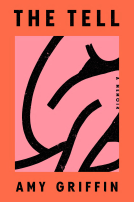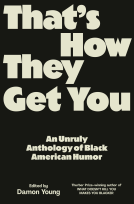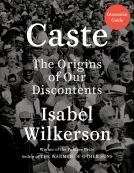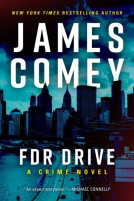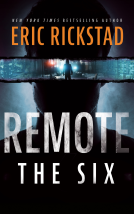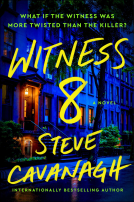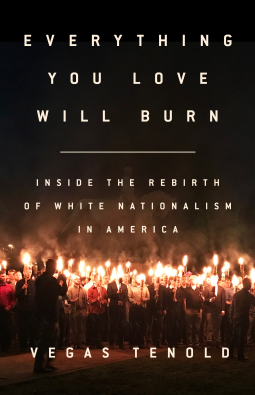
Everything You Love Will Burn
Inside the Rebirth of White Nationalism in America
by Vegas Tenold
This title was previously available on NetGalley and is now archived.
Send NetGalley books directly to your Kindle or Kindle app
1
To read on a Kindle or Kindle app, please add kindle@netgalley.com as an approved email address to receive files in your Amazon account. Click here for step-by-step instructions.
2
Also find your Kindle email address within your Amazon account, and enter it here.
Pub Date Feb 20 2018 | Archive Date Feb 20 2018
Perseus Books, PublicAffairs | Bold Type Books
Talking about this book? Use #EverythingYouLoveWillBurn #NetGalley. More hashtag tips!
Description
Six years ago, Vegas Tenold embedded himself among the members of three of America's most ideologically extreme white nationalist groups-the KKK, the National Socialist Movement, and the Traditionalist Workers Party. At the time, these groups were part of a disorganized counterculture that felt far from the mainstream.
But since then, all that has changed. Racially-motivated violence has been on open display at rallies in Charlottesville, Berkeley, Pikesville, Phoenix, and Boston. Membership in white nationalist organizations is rising, and national politicians, including the president, are validating their perceived grievances.
Everything You Love Will Burn offers a terrifying, sobering inside look at these newly empowered movements, from their conventions to backroom meetings with Republican operatives. Tenold introduces us to neo-Nazis in Brooklyn; a millennial Klanswoman in Tennessee; and a rising star in the movement, nicknamed the "Little Fü by the Southern Poverty Law Center, who understands political power and is organizing a grand coalition of far-right groups to bring them into the mainstream.
Everything You Love Will Burn takes readers to the dark, paranoid underbelly of America, a world in which the white race is under threat and the enemy is everywhere.
Available Editions
| EDITION | Other Format |
| ISBN | 9781568589947 |
| PRICE | $27.00 (USD) |
| PAGES | 320 |
Links
Featured Reviews
 Reviewer 201788
Reviewer 201788
What had initially motivated my excursion into the world of white supremacy was curiosity about a brand of politics that seemed almost too outdated to be real - and one that I was surprised to find thriving throughout the country.
Journalist Vegas Tenold explains that it was the 2011 massacre perpetrated by Anders Behring Breivik in Norway that drove him to delve deeper into the world of white supremacy groups. Describing that event, he says it "exposed a world of far-right radicalism that I had scarcely known existed until then and certainly had not believed capable of such a level of carnage. I became convinced that the path to defeating extremism was through understanding it. I began reaching out to more white supremacists and nationalists in the United States, eventually leading me into a world of racism, vitriol, staggering ineptitude, and quixotic ambition. Only toward the end of my foray did I realize that the far-right radicals in America were in the forefront of a nationalistic zeitgeist that would upend the entire 2016 presidential election as well as the political landscape of America."
From 2011, Tenold undertook the not so enviable task of shadowing and reporting from within three American white supremacy groups - the KKK, the National Socialist Movement, and the Traditionalist Workers Party. He also covers some splinter parties, like the Aryan National Alliance, in this very disorganized, often bumbling world of hate groups, factions with specific belief sets or reasons leading them to form their own small, insular groups.
That's the premise - Tenold follows several groups, with his primary contact being Matthew Heimbach. Heimbach is the leader and founder of the neo-Nazi Traditionalist Worker Party. Tenold identifies him as more dangerous than his louder, more inflammatory counterparts thanks to his seeming lack of the scary extremism that characterizes so many of them. Tenold accompanies him to various meetings, events and protests or rallies. They have an, if not convivial, then at least comfortable friendship of sorts.
My biggest question, which is touched on somewhat on a few times throughout was if he'd begun to sympathize with his subjects, particularly Heimbach, with whom he spends the most time. He considers it when Heimbach asks him if he wants to know his thoughts on the Holocaust.
His question made me wonder if all the time we had spent together had dulled in some ways or softened my journalistic instincts. If you spend enough time with another person, however much you disagree with or abhor that person's opinions on certain matters, you're bound to find traits you like...He was always upbeat and friendly and had a way of dismissing the rest of the far right in a way that hard to disagree with. Also, there were political issues that we agreed on. We both felt strongly for the struggle of Palestinians, and both believed that the prevalence of money and special interests in American politics had gotten the country into trouble.
Heimbach doesn't use racial epithets, and "the folksy, friendly qualities that made him so much more dangerous than your garden-variety white supremacist had gotten under my skin." He doesn't ask him certain things because he doesn't want to hear the inevitable answers. It's an odd aspect that was never quite resolved in my mind - he doesn't make this a sympathetic portrait whatsoever. And he also presents countering statistics and logic or facts when sharing an argument used by any of the white supremacist groups.
Maybe I was just surprised by his technique, or how he managed to appear neutral to the groups. He does encounter his share of threats and violence, although mostly they service to underscore how wildly disorganized and lacking in cohesive order and realistic principles these groups are.
About that disorganization, it extends in a way to their views of themselves and their reach and membership. For example, at a KKK meeting, "Apparently the lackadaisical showing today was no indication of the KKK's true membership because...there were public members and there were secret members. There was zero evidence to support his claim, but in a way - and according to the Klan's nebulous logic, wasn't the absence of proof really all the proof you needed?" As if you needed any additional reasons why the real fake news (pre-Trump's co-opting) like Russian Facebook ads, and alternative facts were able to be so readily accepted by so many. They lie to themselves all the time. I guess that's a big duh, but Tenold lays it out in an all-too-clear picture.
This idea of the unimportance of facts repeats later when he describes a talk given by Richard Spencer, where Spencer was challenged at a college lecture with dreaded facts:
"You only cited feelings and emotions. You stood up there tonight and said, 'The world is a worse place, and don't you feel that way, white people?' But literacy rates are the highest they've ever been" - "Who cares," Spencer interjected - "the number of people who die in war is the lowest it's ever been, infant mortality is the lowest it's ever been, women who die in childbirth is the lowest it's ever been...."...What good were numbers that showed that the world was moving forward when white men in particular felt like they were losing ground? Who cared about child mortality and childbirth casualties and literacy rates?
The Hammerskins were the most horrifying group profiled for me, out of an extremely horrifying selection of prospects, mainly because of their propensity for intense, almost frenzied violence, even against each other. But every single group will make you shudder. The only comfort is that they're generally so disorganized that they don't accomplish as much as might be expected if they were smarter and didn't spend so much time fighting with each other.
Looking for a Loyal White Knights rally deep in rural North Carolina, Tenold writes, "At the turn-off to a narrow dirt road stood a decrepit old tractor that someone had taken the time to drape in a Confederate flag. It seemed like a clue, so I took a chance and turned left into the woods." It's a little bit of dark humor, but along with his portrayals of the aforementioned ineptitude among the groups, it helps to lighten up the tone of what's a very serious journalistic look at very seriously frightening hate groups.
Tenold is a compelling writer and his journalistic immersion amongst these unsavory groups, which have been getting louder and bolder of late, is an important look at an ugly but present reality of the recent racial, cultural, and social tensions that have boiled over in America. I found it more readable and less political in scope than the recent Alt-America, but it covers similar topics and makes a good companion read.
 Alexis A, Reviewer
Alexis A, Reviewer
This book is especially relevant and ties in directly to the rising alt-right movement that I never saw coming. This was excellently written and does not make a caricature of those involved as it would be easy to do. This gets into the thinking of some of those on the alt-right and delves into their pasts, and how one can begin to form such awful opinions. It also offers a helpful guide to the history of the KKK, and how it has fallen and risen repeatedly over the decades, and illuminates how the various white supremacist groups interact with each other. White supremacy is never portrayed sympathetically, but for every one wondering "who are these people?" "how did they start thinking this?" and "how did we get here?" this is a valuable insight.
